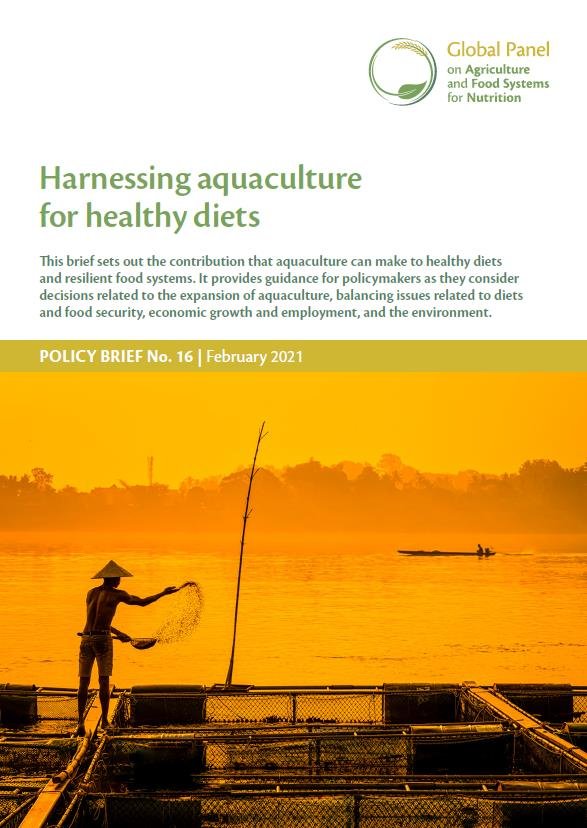- Share this article
- Subscribe to our newsletter
Harnessing aquaculture for healthy diets
The brief Harnessing aquaculture for healthy diets was launched by the Global Panel on Agriculture and Food Systems for Nutrition in February 2021. It presents evidence on how aquaculture can contribute to more resilient and more sustainable food systems; enhance the diets and health of populations through improved nutrition; provide new employment and trade opportunities; and reduce the pressure on capture fisheries.
Aquaculture is a fast-growing agricultural sub-sector, with global production projected to reach 105 million tons per year by 2029. Global fish consumption has risen by 3.1 per cent per year since the 1960s, while consumption of other animal source foods grew by 2.1 per cent per year. The projected demand for fish is expected to increase 16.3 per cent by the end of the decade. This is creating pressure on capture fisheries, which are being overfished and under threat from climate change. Estimates indicate that over one third of fish stocks are being fished beyond biologically sustainable levels, rising from 10 per cent in 1974.
The brief shows that aquaculture, if managed sustainably, could provide a viable alternative to capture fisheries alongside more sustainable practices, and help reduce our reliance on terrestrial protein sources.
Aquaculture can also support healthy diets. Fish is a rich source of protein, omega-3 fatty acids and micronutrients. For many poorer populations, fish may be the most accessible and affordable animal-source food.
The brief also highlights the many employment and economic opportunities aquaculture could offer, particularly in low- and middle-income countries. Around 20.5 million people globally were employed in aquaculture in 2018, around a fifth being women. Fish is one of the most traded food commodities globally, growing at 4 per cent per annum.
In the new brief, the Global Panel presents a set of recommendations to harness science and technology and create a better policy environment to promote sustainable aquaculture. It also highlights a series of risks and challenges which must be addressed if aquaculture is to extend its contribution, such as reducing loss and waste and developing more sustainable feed options.
(glopan/ile)
Read more and download the brief Harnessing aquaculture for healthy diets at the website of the Global Panel on Agriculture and Food Systems for Nutrition





Add a comment
Be the First to Comment